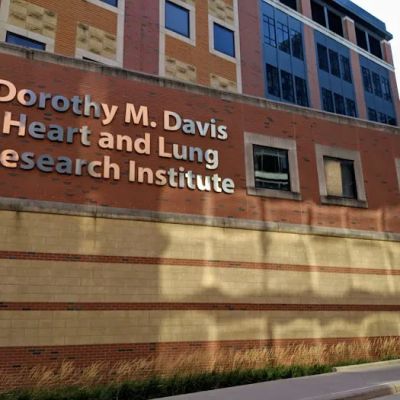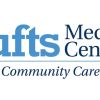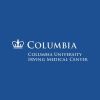- understanding-heart-symptoms - understanding-heart-symptoms - how-the-heart-signals-trouble
- subtle-warning-signs - subtle-warning-signs - common-symptoms-often-ignored
- differences-in-men-and-women - differences-in-men-and-women - gender-specific-heart-issues
- real-life-stories - real-life-stories - experiences-that-changed-awareness
- preventive-actions - preventive-actions - daily-habits-to-protect-your-heart
- professional-guidance - professional-guidance - when-to-seek-help-and-where-heartcare-hub-comes-in
1. Understanding Heart Symptoms
1.1 How the Heart Signals Trouble
Your heart rarely stops working without warning. Most cardiovascular issues develop over time, and your body often sends early distress signals. The challenge is that these signs can be subtle—often dismissed as fatigue, indigestion, or stress. Understanding how your heart communicates can literally save your life. Shortness of breath after light activity, unusual tiredness, or slight chest pressure can all indicate that your heart is under strain. Recognizing these signals early helps prevent severe complications like heart attacks or arrhythmias.

2. Subtle Warning Signs
2.1 Common Symptoms Often Ignored
Many people assume that heart problems always announce themselves with dramatic chest pain. In reality, many life-threatening cardiac issues begin with subtle symptoms that people overlook for months. These may include:
1. Persistent Fatigue: Feeling constantly tired despite adequate rest can be an early indicator that your heart isn’t pumping efficiently. Reduced blood flow means your organs and muscles aren’t getting enough oxygen.
2. Dizziness or Lightheadedness: Frequent dizziness could mean reduced blood circulation, potentially caused by an irregular heartbeat or blocked arteries.
3. Discomfort in the Jaw, Back, or Neck: Not all chest-related pain points to heart trouble; sometimes the pain radiates to unexpected areas, especially in women. This happens when nerve pathways transmit pain signals differently.
4. Shortness of Breath: Difficulty breathing after minimal exertion—like climbing a short flight of stairs—can signal early congestive heart failure or valve problems.
These everyday experiences are easy to overlook, but they’re your heart’s way of asking for attention. Listening to your body and acting promptly can prevent severe outcomes.
Atlanta Heart Specialists
atlanta heart specialists
4375 Johns Creek Pkwy #350, Suwanee, GA 30024, USA

3. Differences in Men and Women
3.1 Gender-Specific Heart Issues
Heart disease affects both men and women, but the symptoms often present differently. Men tend to experience more classic signs such as tightness or pain in the chest, especially during exertion. Women, however, may exhibit atypical symptoms like nausea, back pain, or fatigue that develops gradually. These differences often cause delays in diagnosis, making women more likely to suffer severe heart events without prior treatment.
For example, a 2022 study from the American Heart Association found that nearly 40% of women experiencing heart attacks reported no significant chest pain at all. This highlights the importance of awareness and regular health screenings, especially for individuals with family histories of cardiac disease.
4. Real-Life Stories
4.1 Experiences That Changed Awareness
Consider the story of Tom, a 52-year-old teacher from Ohio who ignored months of mild fatigue and shortness of breath, assuming it was due to stress. One afternoon, he fainted during a staff meeting and was later diagnosed with severe coronary artery disease. Doctors explained that early testing could have identified his condition long before it became critical. Similarly, a young mother in California began noticing sharp shoulder pain while resting—she later learned it was a warning sign of a heart attack.
These real-life accounts remind us that heart symptoms don’t always match our expectations. Listening to your body, no matter how minor the symptom, is essential to early detection and survival.
5. Preventive Actions
5.1 Daily Habits to Protect Your Heart
Maintaining heart health doesn’t require drastic changes—small, consistent actions have the biggest impact. Regular exercise, a diet low in trans fats and high in fiber, and managing stress all contribute to stronger cardiovascular function. Monitoring blood pressure, cholesterol levels, and glucose regularly also helps track long-term heart wellness. Avoiding smoking and limiting alcohol intake can drastically reduce your risk of developing heart disease.
Incorporate habits like brisk walking, meditation, and proper hydration into your daily routine. Even small efforts—like taking the stairs instead of the elevator—can strengthen your heart muscle over time. Prevention is always more effective and affordable than treatment.
6. Professional Guidance
6.1 When to Seek Help and Where HeartCare Hub Comes In
If you experience any of the warning signs mentioned above, especially in combination, consult a medical professional immediately. Early diagnosis can make a tremendous difference in outcomes. At HeartCare Hub, you can find comprehensive resources and recommendations for cardiology clinics, screening services, and wellness programs designed to support long-term heart health.
Whether you’re seeking lifestyle advice or need help interpreting your symptoms, HeartCare Hub provides expert-backed information and connects you with trusted specialists across the U.S. Recognizing heart issues from everyday symptoms is the first step—taking action ensures a healthier, longer life.






















Deborah Heart and Lung Center
deborah heart and lung center
200 Trenton Rd, Browns Mills, NJ 08015, USA